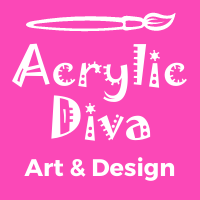To Copyright or Not To Copyright?
First let me say that this is not legal advice. I’m not a lawyer nor do I play one on t.v. However, I will tell you that if you create works of art, whether visual, literary, musical or any other form, you should know your rights. I’ve listed resources below. You should always, always, always, get legal advice around this or any other business issue you might have.
Should you copyright your work? Technically your work is copyrighted from the moment you make it, without any additional action on your part. However, if you ever find yourself in a lawsuit over infringement, it will greatly help your case if your work is copyrighted.
Here’s a direct quote from the U.S. Copyright website:
“When is my work protected?
Your work is under copyright protection the moment it is created and fixed in a tangible form that it is perceptible either directly or with the aid of a machine or device.
Do I have to register with your office to be protected?
No. In general, registration is voluntary. Copyright exists from the moment the work is created. You will have to register, however, if you wish to bring a lawsuit for infringement of a U.S. work. See Circular 1, Copyright Basics, section “Copyright Registration.”
Why should I register my work if copyright protection is automatic?
Registration is recommended for a number of reasons. Many choose to register their works because they wish to have the facts of their copyright on the public record and have a certificate of registration. Registered works may be eligible for statutory damages and attorney's fees in successful litigation. Finally, if registration occurs within five years of publication, it is considered prima facie evidence in a court of law. See Circular 1, Copyright Basics, section “Copyright Registration” and Circular 38b, Highlights of Copyright Amendments Contained in the Uruguay Round Agreements Act (URAA), on non-U.S. works.”
Here are some resources and stories I’ve gathered on this issue. This is by no means a complete list.
The Artist’s J.D. an attorney who specializes in artists. Yes!
In California we have California Lawyers for the Arts. Your state probably has something similar.
Artbusiness.com posted this article on copyright.
Here’s a link to the U.S. Copyright Registration page.
Here’s an interesting article dealing with appropriation.
And let’s not forget the story of Shepard Fairey and the Obama “Hope” poster.
It’s definitely a topic that is rife with problems. As I said in the first paragraph of this post, get legal advice. The few dollars you spend with a lawyer may save you big headaches down the road.
